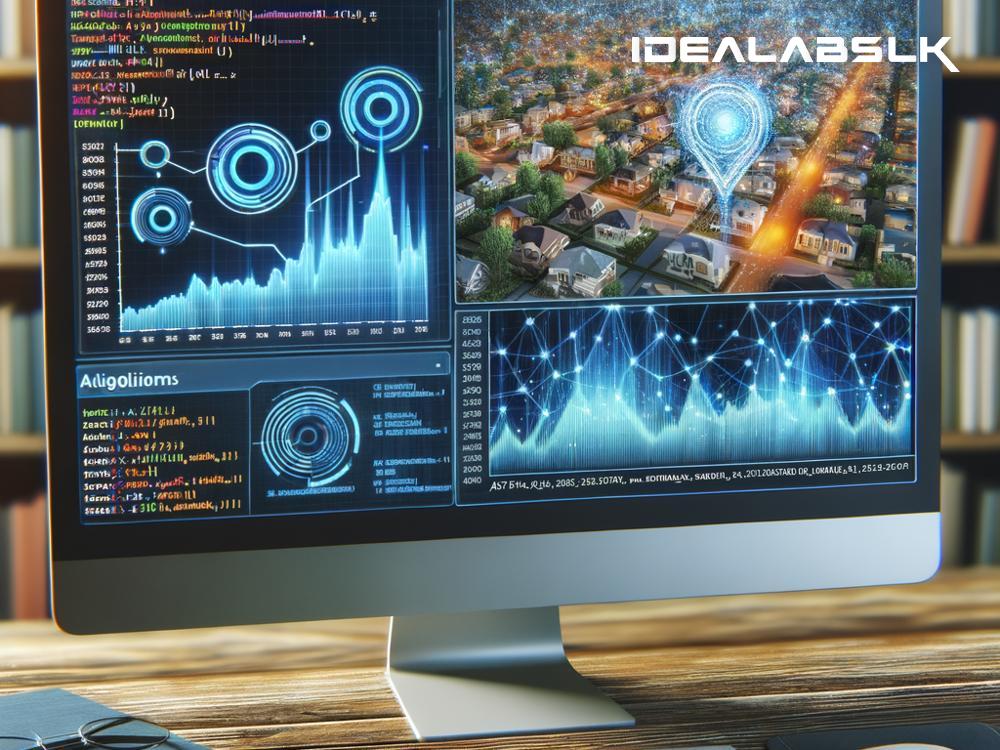Harnessing AI to Spot Overvalued Real Estate Gems
In today's fast-paced real estate market, identifying accurately priced properties is akin to finding a needle in a haystack. Amidst this scenario, one groundbreaking tool is transforming the game: Artificial Intelligence (AI). AI, with its dynamic capabilities, is emerging as a powerful ally in spotting overvalued real estate assets. Let's dive into how AI is reshaping the landscape of real estate valuation and why it's becoming an indispensable tool for investors and buyers alike.
Understanding Overvaluation in Real Estate
Before we explore the role of AI, it's crucial to understand what overvaluation means in the context of real estate. Simply put, an overvalued property is one priced higher than its real worth. Various factors can contribute to overvaluation, including speculative buying, emotional purchases, or misinformation about the property's potential. Identifying such assets is pivotal to ensuring investments are sound and yield expected returns.
The Traditional Approach: Limitations and Challenges
Traditionally, real estate valuation has relied heavily on comparative market analysis, appraisal techniques, and human judgment. While these methods have their merits, they're often time-consuming and susceptible to human errors or biases, leading to potential misjudgments about a property's value. Enter AI, a technology promising to revolutionize this process by offering precise, objective, and timely evaluations.
How AI Identifies Overvalued Real Estate Assets
AI uses a cocktail of data analytics, machine learning algorithms, and vast datasets to assess property values accurately. By analyzing historical transaction data, current market trends, and even social and economic indicators at macro and micro levels, AI provides a holistic view of a property's real worth. Here's a breakdown of how AI accomplishes this feat:
-
Data Analysis: AI systems sift through extensive datasets, including past sales, rental yields, property features, and location attributes, to identify patterns and trends that human analysts might miss.
-
Predictive Modeling: By employing machine learning, AI can predict future market movements based on current and historical data, offering a futuristic glance at potential overvaluation or undervaluation.
-
Objectivity: Unlike human valuations that can be swayed by emotions or personal bias, AI offers an objective assessment based purely on data, ensuring a more accurate valuation.
-
Speed and Efficiency: AI can process and analyze data at a speed unmatchable by human capability, allowing for real-time property valuation and the identification of overvalued assets promptly.
The Benefits of Leveraging AI in Real Estate
The implementation of AI for identifying overvalued real estate assets brings a plethora of benefits:
-
Enhanced Accuracy: With AI's data-driven approach, investors and buyers can enjoy a higher degree of accuracy in property valuation, minimizing the risk of investment in overpriced assets.
-
Informed Decision Making: AI's predictive insights offer a forward-looking perspective, enabling stakeholders to make informed decisions based on potential market shifts.
-
Cost and Time Efficiency: The automation of valuation processes reduces manual effort, saving time and operational costs.
-
Competitive Advantage: Investors leveraging AI have an edge, accessing insights and analysis that guide smarter, data-backed investment choices.
Challenges and Considerations
While AI in real estate valuation offers promising benefits, it's not without its challenges. Concerns surrounding data privacy, the accuracy of machine learning models, and the digital divide between large and small investors are pertinent. Ensuring transparent and ethical use of AI, alongside continuous refinement of AI models, is essential to tackle these challenges effectively.
Looking Ahead: The Future of AI in Real Estate
As AI technology continues to evolve, its role in identifying overvalued real estate assets is set to grow. With advancements in AI and machine learning algorithms, future systems will become even more sophisticated, offering deeper insights and predictions about the real estate market.
In essence, AI stands as a beacon of change in the realm of real estate, offering a smarter, more accurate way to identify overvalued properties. For investors and buyers, integrating AI into their valuation process means not just keeping pace with the market but staying ahead of it, making informed decisions that pave the way for successful investments.
The takeaway? In the world of real estate, AI is not just a tool; it's a game-changer, transforming how we perceive and evaluate property value. Embracing AI is stepping into the future of real estate, where overvaluation is no longer a hidden pitfall but a clearly marked sign, navigable with the right technological insight.

